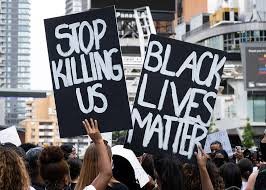The Black Lives Matter (BLM) movement gained significant attention in Canada in 2020, following the tragic death of George Floyd in the United States. In response, protests and discussions about racism, police brutality, and systemic inequality took place across Canada. This sparked an important political conversation about race relations and justice.
In June 2020, thousands of Canadians took to the streets to demand justice for George Floyd and to raise awareness about racism in their own communities. Major cities like Toronto, Vancouver, and Montreal saw peaceful protests, as Canadians showed solidarity with the American movement. Many protesters also voiced their concerns about the treatment of Black Canadians and Indigenous communities by law enforcement.
Prime Minister Justin Trudeau responded to the protests by acknowledging that racism existed in Canada and that it needed to be addressed. He pledged that his government would take steps to combat systemic racism, both within law enforcement and broader society. Trudeau highlighted the importance of “listening” to marginalized communities and promised to do more to create a more inclusive Canada.
The BLM movement in Canada also led to discussions about police reform. Some provinces and cities debated defunding the police, reallocating resources to community-based programs, and implementing better training for officers to handle racial bias. Politicians from all parties, including the Liberal Party, agreed that more action was needed to address racism in Canada’s policing system.
In response to these calls for change, the federal government introduced new measures aimed at improving relations between law enforcement and communities of color. This included funding for programs that aim to reduce the over-representation of Black and Indigenous people in Canada’s justice system and efforts to ensure that police officers are trained to identify and eliminate racial bias.
The protests and public discourse around BLM in 2020 were a critical turning point in Canadian politics. They forced the country to examine its own history of racism and injustice, which had often been overlooked. The government, along with civil society, began taking steps to address these challenges head-on.
While the political response was a start, many activists and advocates stressed that more needed to be done. They called for systemic changes that would address the root causes of racial inequality in Canada. The Black Lives Matter movement in Canada demonstrated the power of collective action and its ability to influence national politics.
To stay updated on this and other political issues, visit canadianupdates.com.







